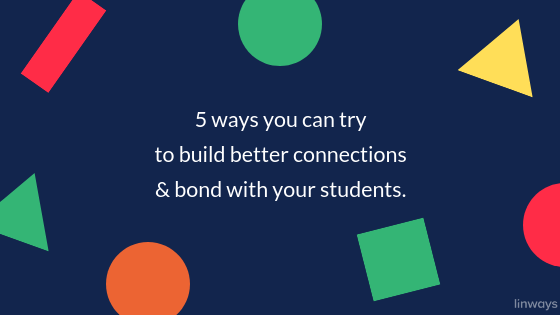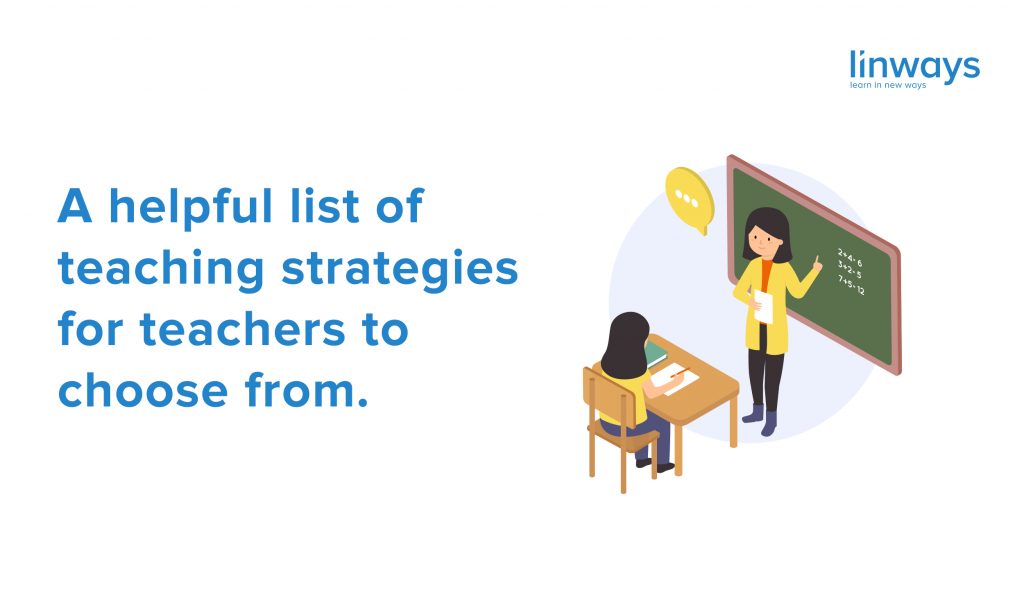Building a connection with your students would go a long way in establishing yourself as teacher that your students actually like. Not as if you wanted to earn it but so much as it creates a sense of belonging and closeness between you and your students. Students would listen to the teachers they like. They go out of their way and put in more effort to make you feel better and impress you. A Student-teacher relationship offers a sense of accomplishment for them as much as you, as a teacher, would have when you realise that your students love you, and they study better for you.
However, we have seen many teachers being overly conscious about this and ruining the act. Especially if you are new, it can be hard and confusing to figure out the best way to reach out to your students and create a bonding with them outside the class. So we drew out some easy ways to build a connection with your students outside the class. Here goes…

1. Let them know how much you care
It would mean a lot to let your students know that you really care; that they are more than academic work to you. So let them know about why you chose teaching, and tell them that teaching, for you, is a passion. That will pass the message that this is more important to you than driving results.
Be whatever as it may, once you start showing affection, the feeling eventually becomes mutual and they will start loving you back. Once they starts trusting you, you will discover a whole other world of students’ which most teachers are never let in.
2. Be there for them whenever possible
Never hide an appreciation that might be the boost that student would’ve really needed. A nice remark, or a positive comment on something nice they’ve done will go a long way. You could also try contacting the parent about the achievements of a student so that he may feel proud and confident.
The sense of accomplishment and source of pride are often like obsessions. They makes us feel good and leaves wanting more. So odds are, once you start recognising and start acknowledging their achievements, they will try hard for more and be better each time.
3. Extracurricular activities
Meeting your students outside school/college is a great way to build deeper connections and bonding. A sports event, a club function, or somewhere students spend their time can be fruitful. But be careful not to be too intrusive.
You could think of planning an extracurricular activity outside school/college where you get to spend some time with your students without curriculum deadlines or class decorum hanging over your shoulder. Or even think of starting a club within the class over something arbitrary to communicate more and get to know your students better.
4. Be sincere.
Don’t fake your passion or energy to be with them. Students can easily know of you are bluffing and they’ll call it when they see it coming. Let them know that you are genuinely interested in them, and they are important to you. Being young is when you make decision based on emotions and gut feeling over intellectual thought. This means that if you want you students to like you, you should not play games and be real.
Also, whenever a student shows distaste or disinterest in your enthusiasm, don’t stress it. Students, like everyone, has their own personal space, and we should respect that. Teenage and college years are during when students undergo many of the important changes that defines and influences them for the rest if their lives. They may be going through some kind of problems, or emotional stress at the time, and you being overly friendly might only make them uncomfortable.
5. Use technology to reach out
If you have an Academic Management System or Learning management system in your institution, you can leverage that to build a healthy Student-teacher relationship. Sharing relevant course-related contents outside the curriculum, letting them submit assignments and other works online, letting them know that they can reach you whenever they need etc takes pressure off and makes their lives easier. Collecting online feedback on specific topics and asking them their opinions about key decisions make them feel special. They will know that you respect them and they will respect you back.
So that’s it. We found this topic from the most frequently asked topics on the web and shared our thoughts on it with some teachers. As we talked to more and more teachers, they all vouched that every teacher has at least once faced this issue during their novice days. We also got many of these interesting insights and solutions from experienced teachers who’ve done this many times over the years. Hope you will find this worthwhile, and please add you thoughts down below at the comments.



